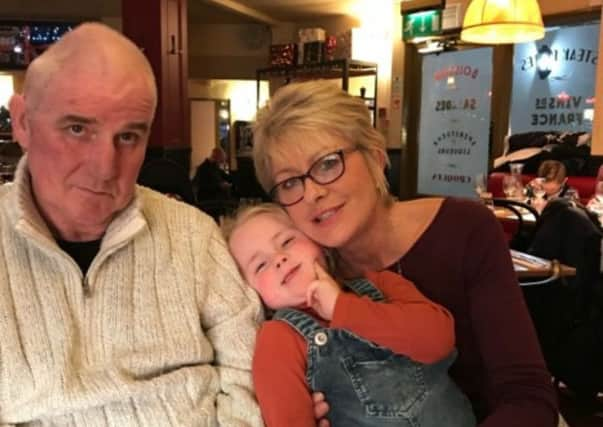Lack of rehabilitation therapy puts stroke survivors' recovery at risk


Today (Tuesday, May 8), the Stroke Association revealed that on average stroke survivors receive a third of the recommended amount of rehabilitation therapy.
NICE guidelines recommend at least 45 minutes, five days a week, of physiotherapy, occupational and speech and language therapy - this will then help survivors re-learn basic skills such as walking, talking and eating.
Advertisement
Hide AdAdvertisement
Hide AdFindings from the latest Sentinel Stroke National Audit Programme (SSNAP) for 2016 to 2017 show that after being discharged from hospital, stroke survivors received what equates to 16 minutes of physiotherapy, 16 minutes of occupation therapy and 12 minutes of speech and language therapy a day.
Stroke Association is calling on health commissioners in England to prioritise meeting the recommended amount of time for each type of therapy to ensure that survivors can have the best recovery.
Juliet Bouverie, chief executive at the Stroke Association said: “These findings clearly show that the amount of rehabilitation therapy stroke survivors receive once they return home from hospital is woefully inadequate, and jeopardises their recoveries.
“Almost two thirds of stroke survivors leave hospital with a disability.
Advertisement
Hide AdAdvertisement
Hide Ad“For those who have been robbed of the ability to carry out simple every-day tasks, access to rehabilitation therapy can be truly life-changing, for them and their families. We know that some stroke survivors have resorted to paying privately for therapy as they fear for their future.
“But, rehabilitation therapy is an absolute necessity for stroke recovery, it should not be a luxury only available to those who can afford it.”
Marion Walker is a leading stroke rehabilitation specialist and a professor of stroke rehabilitation at the University of Nottingham.
She said: “It’s a commonly held misconception that you can’t recover from stroke.
Advertisement
Hide AdAdvertisement
Hide Ad“However, we have robust evidence that shows stroke rehabilitation therapy can help people to regain the skills of daily life.
“I’ve seen and supported many stroke survivors, who had been told they would be left with lifelong disabilities, defy expectations after receiving the right level of rehabilitation and support.
“Stroke is a recovering condition and rehabilitation is absolutely worth investing in.
“In recent years we have seen dramatic improvements in stroke care and more people than ever are surviving a stroke.
Advertisement
Hide AdAdvertisement
Hide Ad“However, the importance of continuing vital rehabilitation therapy once a patient has been discharged from hospital is still not being recognised and as a result many stroke survivors are missing out on their best chance of recovery.”
• The Stroke Association is campaigning for better stroke prevention, treatment and care and is working with NHS England on the final phase of a new national plan for stroke in England, in partnership with others from across the health and care system.
For more information, click here
• CASE STUDY: Lincolnshire stroke survivor
Steven Rix, 54, had an ischaemic stroke on 2nd May 2017, and went to hospital in Hull.
He was given the clot busting drug thrombolysis but it had not worked.
Advertisement
Hide AdAdvertisement
Hide AdPressure began to build in his brain and Steven underwent a craniectomy the following day.
While in hospital he had some rehabilitation and he was discharged home in September.
Steven is now in a wheelchair and he currently gets one 45 minute session of physiotherapy a week, which is due to end very soon.
The occupational therapist comes once or twice a week.
Steven and his wife Joy think the therapists and the quality of therapy he receives are excellent - seeing the therapists almost as members of the family.
Advertisement
Hide AdAdvertisement
Hide AdThe issue is that the couple think Stephen would benefit from having therapy more frequently.
Having therapy only once a week means that Steven has to start from the beginning at each session, rather than building on his progress.
Stephen and Joy try to practice exercises but because Steven’s balance isn’t good and he could fall, it isn’t safe for Joy to do exercises with him without support.
Joy believes that regular sessions would help Steven meet goals that could make a big difference to his quality of life, he could go the bathroom by himself. The couple looked into private physiotherapy – but were discouraged because if they go private they would lose the service they already have.